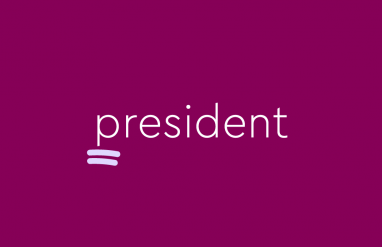There is a commonly stated “rule” of grammar that beginning a sentence with and, or any other conjunction, is a mistake. But this is just not true. This supposed “rule” has no basis in actual writing, and even formal writing features plenty of sentences that start with and and other conjunctions. And we think that is really cool. So, are we going to debunk this pesky rule (that isn’t really a rule) stating that conjunctions can’t be sentence leaders? Yes, we are.
Can you start a sentence with and?
The word and is one of the most commonly used words in English, and it is one of the seven coordinating conjunctions used to form complex sentences like this one. Normally, we use a comma when we join independent clauses together with coordinating conjunctions. For example:
- I have a cat, and my sister has a dog.
Now, it is time to answer the million dollar question. Can you start a sentence with the word and? Despite what some supposed grammar gatekeepers might tell you, the answer is yes! In fact, most style guides encourage starting a sentence with a coordinating conjunction if you are trying to make a point or using it for stylistic emphasis. For example, we can use and for dramatic effect like so:
- We used every trick, strategy, and gimmick we had at the competition. And we won!
There are a variety of reasons that we might start a sentence with and, such as for rhetorical effect, style, clarity, or flow. That being said, some people consider this to be improper, so don’t be surprised if you have a teacher or boss that takes you to task over this “mistake.” Still, you probably don’t want to overdo it and start all of your sentences with and.
➡️ One thing to keep in mind
There is one caveat to keep in mind, though, which doesn’t just apply to sentences starting with and. A complete sentence has a subject and a predicate. A collection of words that lacks one of these is not a sentence but a sentence fragment. While formal writing does allow for a very limited use of sentence fragments, these are often considered to be outright grammatical errors. So, unless you have a good reason, you should usually try to ensure your sentence that begins with and is, in fact, a sentence and not a sentence fragment. For example:
- Sentence: The woods were dark and spooky. And I think I saw a ghost!
- Sentence fragment: The circus has a dozen clowns. And a bear on a unicycle!
Examples
The following examples show the different ways we might use and to begin sentences.
- You may feel sad sometimes. And that’s okay.
- My neighbor is a nice guy who helps with yard work. And he gets me free coffee.
- The author announced another delay of her new book. And the reaction was just what you’d expect.
Can you start a sentence with but?
That takes care of and, but what about but? Like and, but is another of the seven coordinating conjunctions. All the points that we made about and apply to but as well. Typically, we use a comma when combining sentences with but. But we could use it to start a sentence instead! As with and, we might do this for many reasons. And it isn’t a mistake to do it!
Examples
Here are some examples of sentences that begin with but.
- I really need a new car. But I can’t afford one.
- It slices. It dices. It will file your taxes for you. But that’s not all!
- The comedian told all his best jokes. But nobody laughed.
You don’t always have to use but! Learn some alternatives for this common conjunction.
What about the other conjunctions?
As mentioned previously, and and but are two of the seven coordinating conjunctions. But what about the other five? Can we start sentences with them too? Yes, we can! While we typically use a comma to join sentences with coordinating conjunctions, we could also break those sentences apart.
Let’s look at examples of sentences that begin with each of the other five coordinating conjunctions.
- For: I didn’t tell my teacher I enjoyed her class. For that would be a lie.
- Nor: She didn’t hurt that poor kitty. Nor would she hurt any animal.
- Or: We could say we saw an alien. Or we could pretend none of this ever happened.
- Yet: Dash ran as hard and as fast as he could. Yet he still only finished third in the race.
- So: My daughter really doesn’t want to clean her room. So she has been hiding from me all day.
So far, we have only talked about coordinating conjunctions, but there are many more conjunctions out there. Can we start sentences with them, too? We sure can! For example:
- We will go to the store. After we eat breakfast, of course.
When we look beyond coordinating conjunctions, we see a new trend start to emerge. These other conjunctions are subordinating conjunctions, meaning they attach a subordinate clause to a main clause. Grammatically, it is considered perfectly acceptable to begin a sentence with a subordinate clause. In fact, you will see this extremely often in formal writing and even the strictest grammarian would not consider this to be against the rules. For example:
- Because I needed an A on the test, I studied harder than I ever had before.
Additionally, many of these conjunctions can also be used as adverbs and it is totally in line with grammatical rules to begin a sentence with an adverbial phrase:
- After all that running around, my dog took a long nap.
All of this means that not only can you start sentences with conjunctions, you might end up with a much clearer and interesting sentence if you do!
Examples
Let’s finish things up by looking at a whole bunch of great sentences that begin with conjunctions.
- My kids would never steal something. Because they know stealing is wrong.
- I didn’t call his bluff. Although I was really tempted to.
- This puzzle is really easy. Even a baby could solve it.
- We will catch Bigfoot. If we can ever find him.
- She said she was going to meet Bart in Springfield. Wherever that is.
- Nate can be the best player on the team. When he feels like it.
- This mystery is all but solved. Now that Sherlock Holmes is here.
- The two brothers need to work together. Before it is too late.
And there’s more—Grammar Coach™, that is!
Confused about conjunctions and their proper use? The Thesaurus.com Grammar Coach™ platform makes writing papers, essays, emails, and a whole lot more a whole lot easier. This writing tool uses machine-learning technology uniquely designed to catch grammar as well as spelling errors. Its Synonym Swap will find the best nouns, adjectives, and more to help say what you really mean, guiding you toward clearer, stronger, writing.














